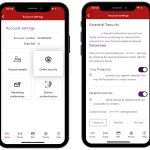Enterprise Partnerships Slam Selective Ofcom Ranking of UK Broadband

The Chairmen of two enterprise partnerships – Buckinghamshire Business First and Oxfordshire Business First – have written an open letter to the Government and Ofcom that criticises the regulators “selective ranking” of the UK as number one in Europe for superfast broadband and calls on the country’s leaders “not to slip into complacency“.
The letter, which comes via way of Richard Browns realBSG group, follows the publication of Ofcom’s recent European Broadband Scorecard, which measured the UK’s progress against the other “major” EU states (i.e. France, Germany, Italy and Spain) and generally placed the country in front.
Advertisement
However the picture changes when you compare against the other 27 EU countries, as reflected in our own coverage of Ofcom’s report (here), where the United Kingdom is revealed to sit around mid-table for superfast broadband coverage and penetration.
The Open Letter
Dear Sirs
Ofcom’s selective ranking of the UK as number one (‘UK overtakes major EU nations for superfast broadband’ March 12th – Ofcom) leaves the public and businesses less well informed as to the reality of UK broadband coverage.
Firstly, in ranking the UK as top (within the five EU nations selected) for ‘superfast’ broadband network, Ofcom uses a low threshold speed of just 30Mbps. At the same time, it ambitiously deems over 70% of UK premises as having access to such speeds. In the real world, such a speed threshold is absurdly slow when compared to the genuine ‘superfast’ speeds available in other EU states and, as ever, in Asia where speeds of 1000Mbps/1Gbps are universally available. Tellingly, when ranked against all 27 EU states (not just the five Ofcom conveniently chose for the sake of a headline) the UK ranks tenth, behind countries like Portugal, Denmark, Belgium, Lithuania and Latvia.
Secondly, the truth is there are large areas of the UK (approximately 10 million homes and businesses according to the Government’s own figures) that are to be supported with public funding to deliver ‘target’ broadband speeds of just 2 Mbps and 24 Mbps (via the BT network). These speeds are well below even Ofcom’s low threshold of ‘superfast’ broadband. These ‘have nots’, which include some of our most productive business premises in rural locations, are being left to languish in the slow connectivity lane indefinitely.
Painting an unduly rosy picture serves us all badly. It amounts to institutional denial of the need for a significant change in policy towards investment in digital infrastructure. It is leading to an unnecessary rapid regional and national decline in our relative productivity and competitiveness. It is akin to adding extra weight to handicap our businesses in what the Prime Minister has called “The Global Economic Race”
Yours sincerely
Digital Business First
Alex Pratt Chairman Buckinghamshire Business First (Local Enterprise Partnership)
Frank Nigrello Chairman Oxfordshire Business First (Local Enterprise Partnership)
It’s worth pointing out that judging the United Kingdom’s progress towards achieving its target of 95% fixed line “superfast broadband” (25Mbps+) coverage by 2017 is also extremely difficult to do, not least because many local councils / BT prefer not to clarify what proportion of their “fibre broadband” target will actually receive “superfast” speeds (“fibre broadband” can mean anything upwards of 2Mbps on the dominant FTTC lines).
On the flip side the comparison with “Asia” should be taken with a pinch of salt because 1Gbps is only widely available in a few well developed South East Asian countries, like South Korea, and even then most still sell 100Mbps+ FTTH connections and not the full 1Gbps capability (note: fibre can also go even faster than this in the future).
At the same time many of those who buy a 100Mbps+ connection don’t actually receive all that speed because the capacity still has to be shared and or managed between many users. For example, SK Broadband in South Korea promises 100Mbps as a minimum but according to Ookla’s speedtest database (note: Ookla’s results have a tendency to be quite optimistic) they actually deliver an average of 56.74Mbps (some clearly don’t get what’s promised).
Advertisement
However this also overlooks the other side of the argument, which is the desire to have a fibre optic infrastructure where the bottleneck is no longer slow and unreliable copper cables in the ground (fibre optic lines should be more reliable, thus easier to maintain and cheaper to upgrade). Some would call fibre optic lines a “future proof” investment due to the huge potential for upgrades and recent enhancements. It’s hard to disagree, although you can never say with certainty what tomorrow may bring.
The issue that everybody usually stumbles over is simply, who pays? Even assuming efficiencies from the UK’s existing FTTC network, you’d still have to spend around £20bn+ for a national FTTH network and it would take many years longer to deploy. In the long term this might be a wise investment but finding a budget for such developments during a period of austerity is like trying to squeeze blood from a stone that’s already turned to dust. It’s not going to happen.
So in the meantime we have BT’s up to 80Mbps FTTC solution, which passes the economic feasibility test (at least as a short-medium term investment) and is quick to deploy. The caveats are that those who live furthest from their street cabinet will still receive sub-superfast speeds, it costs more to maintain and somebody will have to spend again for future upgrades.
Mark is a professional technology writer, IT consultant and computer engineer from Dorset (England), he also founded ISPreview in 1999 and enjoys analysing the latest telecoms and broadband developments. Find me on X (Twitter), Mastodon, Facebook, BlueSky, Threads.net and Linkedin.
« Worcestershire UK Confirms the Phase 2 Fibre Broadband Rollout Areas
Ofcom Revising Broadband Speed Code of Practice for UK ISPs »























































Comments are closed